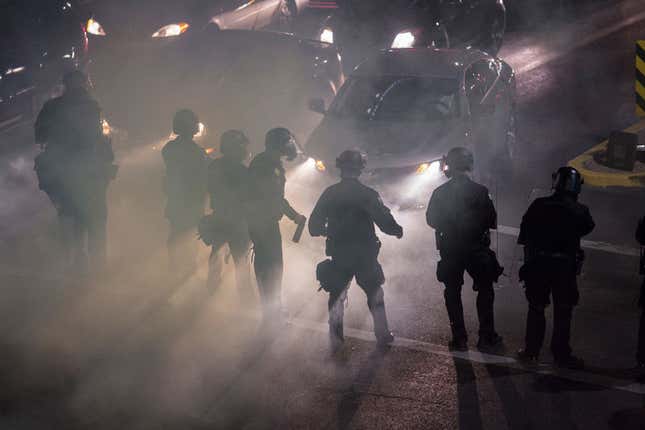
It’s one thing to hear that Black people are often subjected to police brutality, but it’s another to see it happening. Video recordings of police conduct have led to a broader movement to hold officers accountable, but places like Arizona predictability want to add restraints. In July, Arizona Gov. Doug Ducey signed a bill requiring bystanders to stand at least eight feet from a crime scene. A person would get one warning, and then you could be charged with a misdemeanor and be fined.
If this sounds crazy to you, the ACLU and other groups agree. The Associated Press notes that a coalition of Arizona media groups and the ACLU has filed a lawsuit arguing it violates First Amendment protections. Specifically, the alliance wants an injunction to stop enforcement of this law “to prevent Arizona from trampling on their rights to report news, document the activities of public servants, and hold police accountable for their actions toward the people they are sworn to protect and serve.”
“By allowing police officers to arrest and punish people for simply recording video of their actions, the law creates an unprecedented and facially unconstitutional content-based restriction on speech about an important governmental function,” the lawsuit said.
How would reporters be able to chronicle happenings such as protests? That is the million-dollar question because, as the lawsuit notes, the Arizona law is vague in describing what “police activity” is or what constitutes as a verbal warning. Photographers have echoed their concerns when speaking to the Associated Press.
“We fear that, rather than acting as a shield to ensure ‘officer safety,’ this law will serve as a sword to abridge the ‘clearly established First Amendment right to video record police officers performing their official duties in public,” Mickey H. Osterreicher, general counsel for the National Press Photographers Association, said in a statement.

